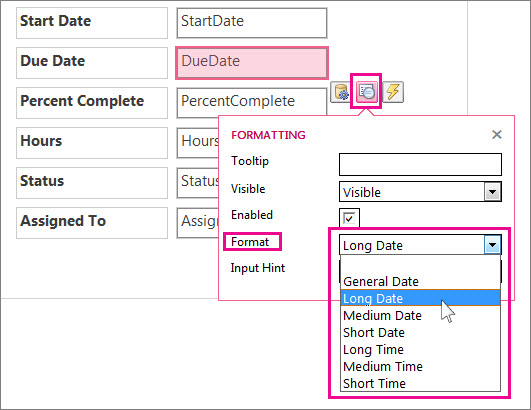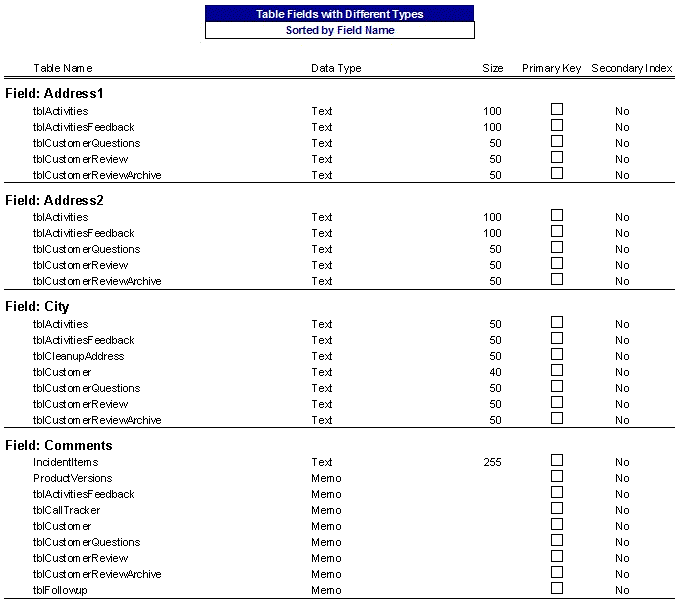



Note that there is a separate data type for currency. Note, beginning in Access 2013, Text data types have been renamed to Short Text. Short, alphanumeric values, such as a last name or a street address. The following tables show you the formats available for each data type and explain the effect of the formatting option. You can often use an expression to compare or convert values of different data types. For example, a field may seem to contain numeric values but may actually contain text values, such as room numbers. Tip: Sometimes, the data in a field may appear to be one data type, but is actually another. For example, values that are stored in a Text field can contain only letters, numbers, and a limited set of punctuation characters, and a Text field can only contain a maximum of 255 characters. Think of a field's data type as a set of qualities that applies to all the values that are contained in the field. On the Modify Fields tab, in the Fields & Columns group, click Add Fields, Access displays a list of data types that you can select from. Use an existing field from another table, the data type is already defined in the template or in the other table.Įnter data in a blank column (or field), Access assigns a data type to the field based on the values that you enter or you can assign the data type and format for the field. For example, if you create a field from the Datasheet view and: How the field can be used in expressions.Ī field's data type can be predefined or you will select a data type depending on how you create the new field. Which formats can be used with the field. So, you have to know what properties are used with each data type.Ī field's data type determines many other important field qualities, such as the following: But a field whose data type is Number can store only numerical data. In this articleĭata types can seem confusing for example, if a field's data type is Text, it can store data that consists of either text or numerical characters. This article describes the data types and other field properties available in Access, and includes additional information in a detailed data type reference section. A field's data type is the most important property because it determines what kind of data the field can store. The properties of a field describe the characteristics and behavior of data added to that field. LessĮvery table in Access is made up of fields. Used for OLE objects.Access for Microsoft 365 Access 2021 Access 2019 Access 2016 Access 2013 Access 2010 Access 2007 More. The default precision and scale are 18 and 0, respectively. You can define both precision (1 - 28) and scale (0 - defined precision). (See Notes)Īn exact numeric data type that holds values from 1028 - 1 through - 1028 - 1. How the data is input in a binary field dictates how it will appear as output. No translation of the data (for example, to text) is made. The synonyms are identified in Microsoft Access Database Engine SQL Reserved Words.Īny type of data may be stored in a field of this type. The following table lists the primary data types. The Microsoft Access database engine SQL data types consist of 13 primary data types defined by the Microsoft Jet database engine and several valid synonyms recognized for these data types.


 0 kommentar(er)
0 kommentar(er)
